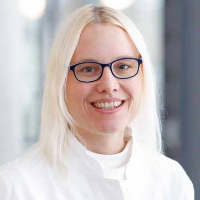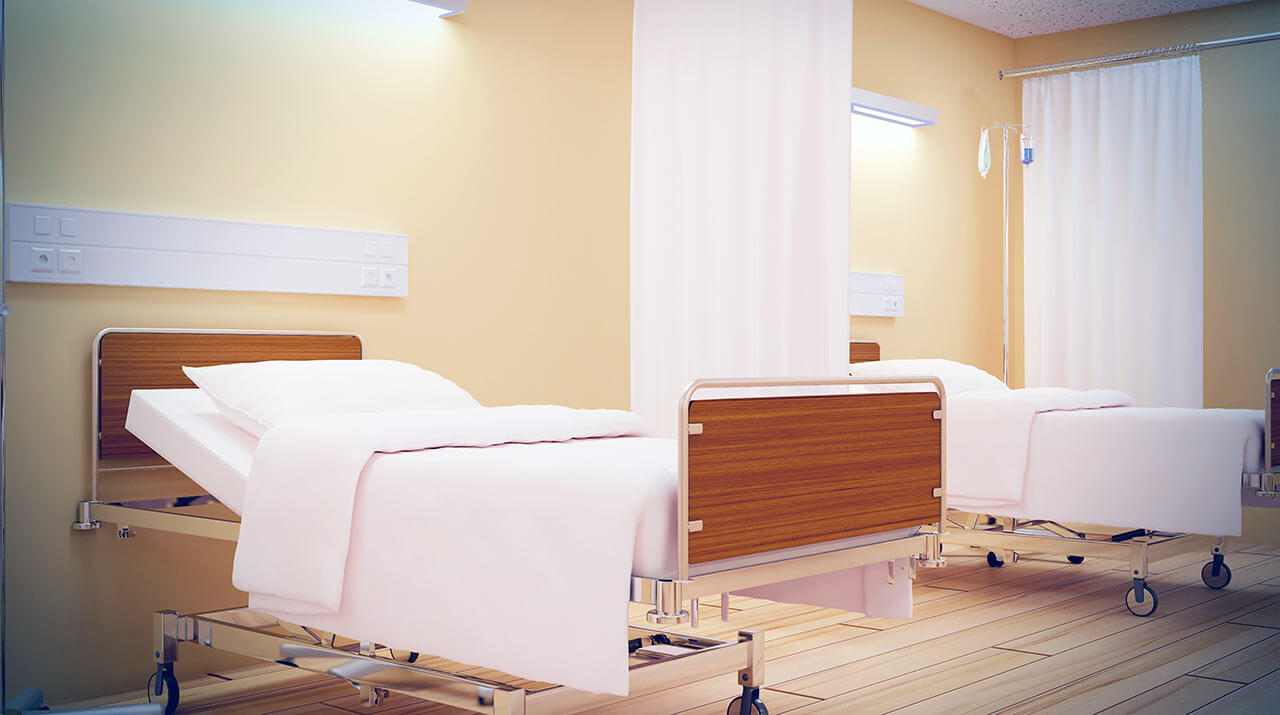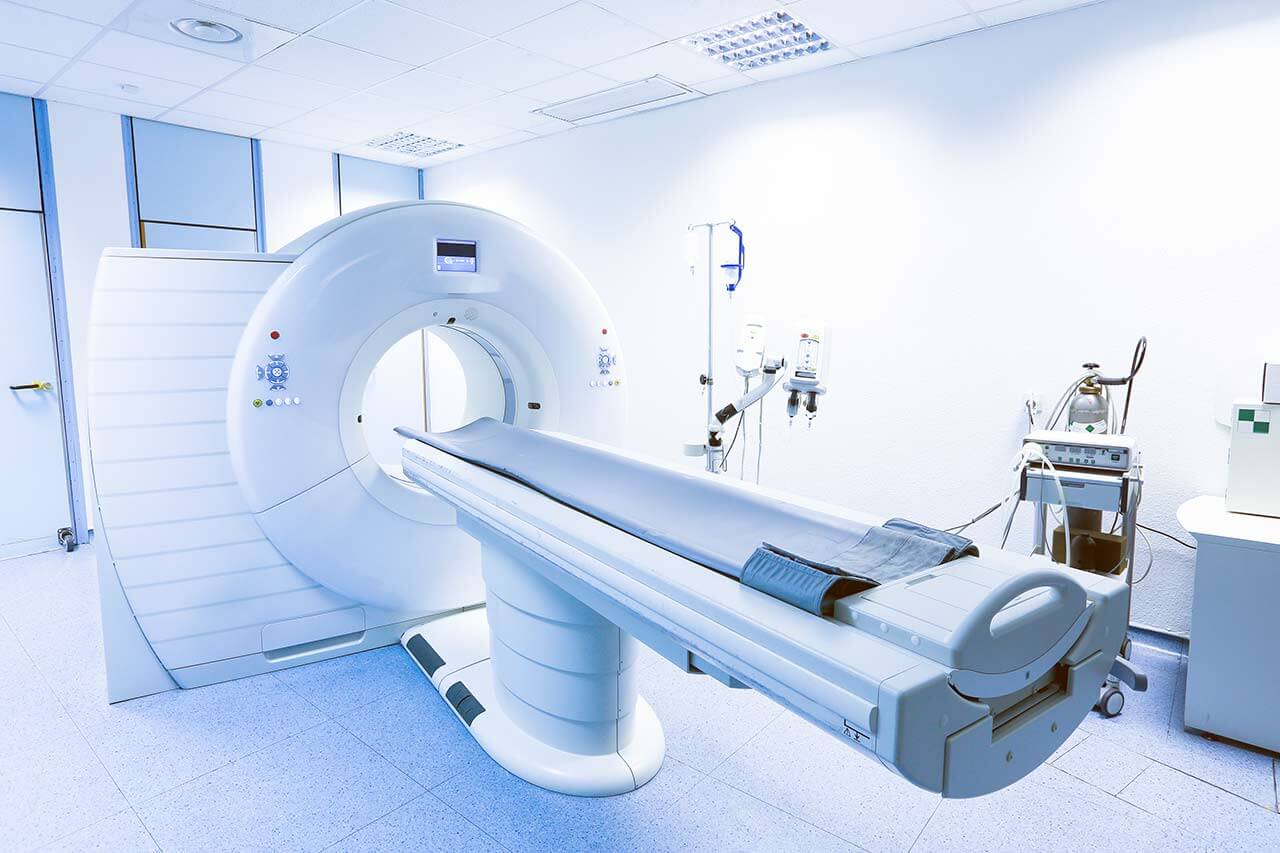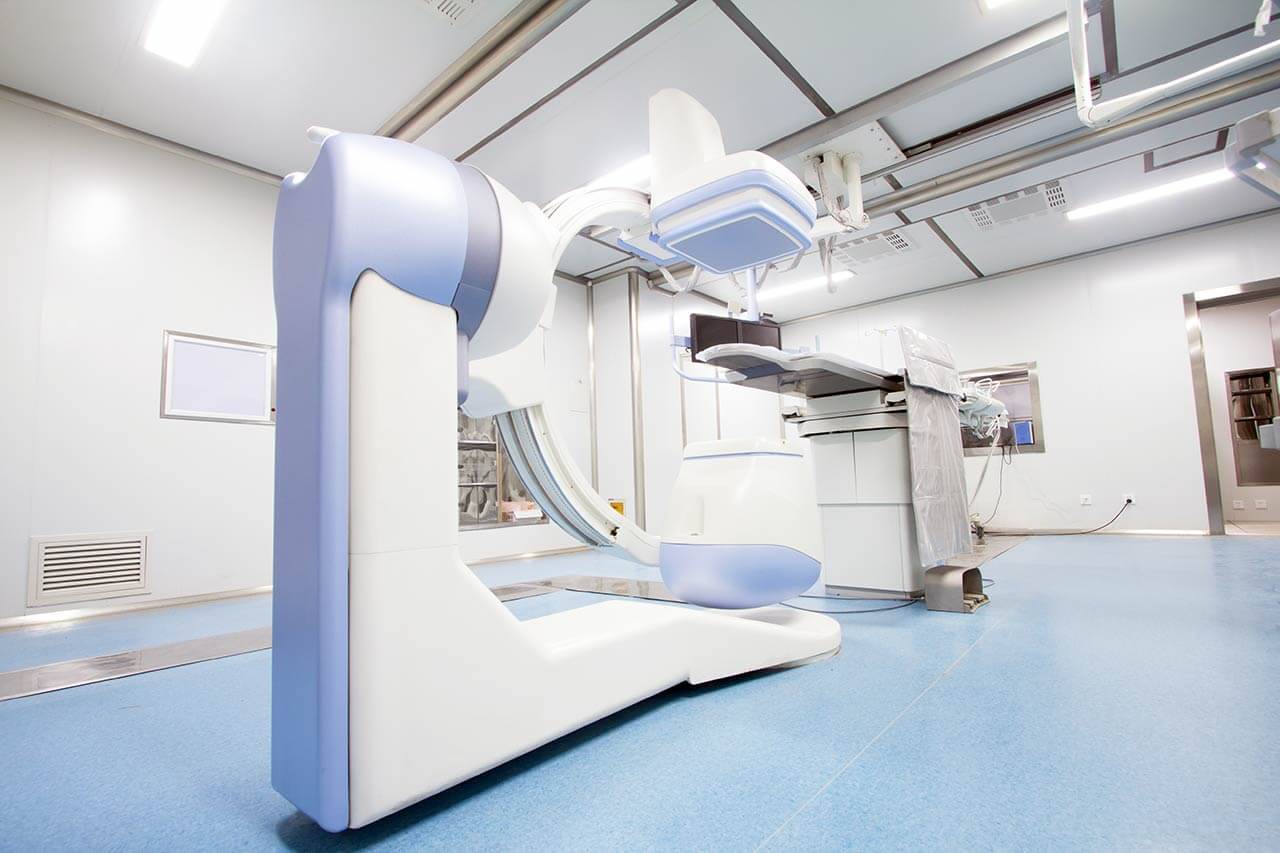
The program includes:
- Initial presentation in the clinic
- clinical history taking
- review of medical records
- physical examination
- laboratory tests:
- complete blood count
- general urine analysis
- biochemical analysis of blood
- TSH-basal, fT3, fT4
- tumor markers
- inflammation indicators
- indicators blood coagulation
- ultrasound of the neck and of lymph nodes
- CT/MRI scan of the mouth
- general otolaryngological examination
- preoperative care
- tumor resection
- histologically and immunohistochemically examination of the remote tissues
- symptomatic treatment
- control examinations
- the cost of essential medicines and materials
- nursing services
- full hospital accommodation
- explanation of future recommendations
Service
You may also book:
 BookingHealth Price from:
BookingHealth Price from:
About the department
The Department of Adult and Pediatric Oral and Maxillofacial Surgery, Facial Plastic Surgery at the University Hospital Greifswald offers the full range of services in the areas of its competence. An important place in the work of the department's doctors is the provision of medical care to patients with fractures and injuries of the facial skeletal bones, head and neck tumor removal surgery, and temporomandibular dysfunction repair. The department's surgeons have vast experience in the correction of cleft lip and palate in adults and children. The medical facility also successfully performs aesthetic and reconstructive facial plastic surgery. In addition, the placement of the latest generation of dental implants is carried out here. The department is certified in accordance with the requirements of the German Cancer Society in the treatment of head and neck tumors, which confirms the high competence of the medical facility in this field. High-tech equipment and expert knowledge, combined with the long experience of the department's doctors, form a solid base for providing effective medical care for patients. The department's specialists guarantee not only high standards of medical assistance but also comprehensive care, a humane attitude, and respect for each patient's individual needs and wishes. The department is headed by Prof. Dr. med. Dr. med. dent. Andrea Rau.
The department houses a specialized Head and Neck Tumor Center, whose doctors regularly treat complex types of cancer of the oral cavity, larynx, pharynx, salivary glands, nasal cavity, paranasal sinuses, etc. The German Cancer Society has awarded the center a quality certificate. This is the most prestigious certificate in the field of cancer treatment in Germany. If, based on the results of the preliminary diagnostics, the patient's diagnosis is confirmed, the department's specialists immediately begin to develop an effective treatment regimen. As a rule, the first-line treatment is tumor resection surgery. When performing the intervention, surgeons use the latest technologies, including navigation systems and neuromonitoring, which ensures the highest accuracy and safety of each surgical procedure. In some clinical cases, doctors manage to remove the tumor using advanced laser equipment or cold atmospheric plasma. A treatment regimen usually also includes other methods, including chemotherapy, radiation therapy, targeted antibody therapy, etc. It should be noted that at the stage of treatment planning, oral and maxillofacial surgeons consider the patient's case in cooperation with doctors from related medical specialties, due to which the optimal complex of therapeutic measures is prescribed. At the end of the main course of treatment, reconstructive plastic surgery can be performed because it is important for the department's doctors to guarantee the patient an aesthetic appearance. Whenever required, the department provides functional rehabilitation to restore the muscles of mastication, as well as phoniatric and speech rehabilitation.
The department's priority clinical interests include correction of temporomandibular joint (TMJ) dysfunction. When patients with a decrease in the range of motion in the TMJ, periodic muscle pain, tinnitus, headaches, and the presence of unusual sounds during jaw movement seek medical help from the department's oral and maxillofacial surgeons, they are indicated for diagnostics to exclude TMJ dysfunction. The main diagnostic procedures include laboratory tests, CT and/or MRI scans, and electromyography. As for the treatment, at the early stages of the pathological process, oral and maxillofacial surgeons strive to solve the problem using conservative methods, such as the placement of special caps and splints to eliminate jaw occlusion disorders and bite correction, drug therapy, intra-articular injections, and physiotherapy. Surgery for temporomandibular joint dysfunction is the last-line treatment. The department's team of surgeons prefers sparing arthroscopic techniques, which contributes to a quick and successful patient's recovery.
Doctors at the medical facility also specialize in dysgnathia correction. The condition is an abnormal development of the facial skeleton. The pathology impairs the aesthetics of the face and the function of the lower jaw. As a rule, patients have pain in the temporomandibular joint, head, and back and have difficulties with pronunciation and chewing food. The pathology often causes not only discomfort but also jaw displacement, which impairs the location of the dentition, causes difficulty breathing, and contributes to the development of complexes associated with appearance. The only effective way to correct dysgnathia is surgery (an osteotomy). Before proceeding with the operation, the department's specialists carry out a number of preparatory measures, which include 3D X-ray modeling of the desired result of a corrective osteotomy. During the procedure, the facial skull is fixed with special titanium plates, which are removed after the intervention. The operation is performed under general anesthesia using minimally invasive techniques to avoid facial skin trauma and scarring. The patient stays in the department under medical supervision for about a week, depending on the severity of the pathology and the extent of the surgical intervention. During this time, the specialists monitor the patient's general condition, which helps to prevent possible inflammatory processes and reduce the risk of infection.
The department's surgeons most often admit patients with the following diseases:
- Oral and maxillofacial surgery
- Benign and malignant head and neck tumors
- Temporomandibular joint dysfunction
- Dysgnathia
- Cleft lip and palate (in adults and children)
- Actinic keratosis
- Alveolar process atrophy
- Oral and maxillofacial fractures and malformations
- Anterior teeth injuries
- Leukoplakia
- Lip and oral mucosal diseases
- Bleeding after tooth extraction and other oral surgery
- Odontogenic and purulent infections
- Salivary gland stones
- Lacrimation
- Abnormal teeth position
- Loss of teeth
- Glossitis
- Facial plastic surgery
- Eyebrow asymmetry (such as drooping eyebrows)
- Eyelid defects
- Blepharochalasis
- Elastolysis
- Exophthalmos
- Enophthalmos
- Facial nerve paralysis
- Lagophthalmos
- Protruding ears
- Ptosis
- Other diseases
The department's diagnostic and surgical range of services includes:
- Diagnostic options
- Laboratory tests
- Biopsy
- Functional diagnostics of the temporomandibular joint
- Temporomandibular joint arthroscopy
- Imaging tests: ultrasound, CT, MRI, PET, and X-ray scans, angiography, three-dimensional volumetric computed tomography
- Surgical options
- Oral and maxillofacial surgery
- Treatment of benign and malignant head and neck tumors
- Surgical resection
- Laser therapy and cold atmospheric plasma therapy in the early stages of head and neck tumors
- Chemotherapy, targeted antibody therapy, and radiation therapy
- Reconstructive plastic surgery
- Jaw bone augmentation
- Treatment of chronic wounds with plasma therapy and vacuum therapy
- Botulinum toxin therapy
- Operations on the temporomandibular joint, including arthroscopic ones
- Dental implantation
- Osteosynthesis using mini- and microplates
- Necrotic tissue removal
- Periprosthetic surgery
- Sinus lift (external and internal)
- Wound debridement
- Wisdom teeth removal
- Root apex resection
- Dental debridement under general anesthesia
- Application of special medicated dressings (for example, iodine-containing dressings)
- Treatment of benign and malignant head and neck tumors
- Facial plastic surgery
- Blepharoplasty
- Forehead and brow lift
- Facelift
- Chin plastic surgery
- Treatment of wrinkles with fillers
- Complex plastic reconstructive surgery for oral and maxillofacial defects
- Flap plastic surgery (transplantation of free flaps with microsurgical vascular connection)
- Scar revision
- Nerve reconstruction, including nerve transplant procedures
- Oral and maxillofacial surgery
- Other diagnostic and treatment methods
Curriculum vitae
Higher Education and Professional Career
- 1997 - 2004 Human Medicine studies, Ruhr University Bochum.
- 2004 Diploma of Doctor of Medicine.
- 2004 - 2008 Dentistry studies, University of Duesseldorf.
- 2011 Diploma in Dentistry.
- 2014 Board certification in Oral and Maxillofacial Surgery, University Hospital Rechts der Isar Munich.
- 2016 Habilitation on the treatment of cleft lip and palate.
- 2016 Additional qualification in Facial Plastic Surgery.
- 2018 W2 Professorship at the University of Erlangen-Nuremberg; position of Senior Physician and Deputy Head of the Department of Oral and Maxillofacial Surgery, University Hospital Erlangen.
- 2019 Board certification in Surgical Dentistry.
- 2020 Master's Degree in Healthcare Management.
- Since January 2021 Professor and Head of the Department of Adult and Pediatric Oral and Maxillofacial Surgery, Facial Plastic Surgery at the University Hospital Greifswald.
Clinical and Research Focuses
- Treatment of head and neck tumors.
- Reconstructive oral and maxillofacial surgery.
- Microvascular tissue transplantation.
- Repair of cleft lip and palate, and craniofacial malformations.
- Surgical treatment of dysgnathia (malocclusion).
- Treatment of facial injuries.
Memberships in Professional Societies
- American Cleft Palate-Craniofacial Association (ACPA).
- German Society of Orthodontics.
- German Society of Oral and Maxillofacial Surgery.
- German-Austrian-Swiss Working Group on Tumors in the Maxillofacial Region (DÖSAK), Director.
- European Association for Cranio-Maxillo-Facial Surgery (EACMFS).
- Cleft Lip and Palate Association.
Photo of the doctor: (c) Universitätsmedizin Greifswald
About hospital
According to the reputable Focus magazine, the University Hospital Greifswald is included in the ranking of the best medical complexes throughout Germany!
The hospital is one of the oldest healthcare facilities in Germany, with long traditions and an excellent reputation. The history of the hospital begins in 1456, when the Faculty of Medicine at the University of Greifswald was founded. During this time, the hospital has managed to earn recognition in the national medical arena and gain prestige abroad. The hospital has 19 institutes and 21 specialized departments. The key to successful clinical practice is the combination of state-of-the-art equipment and highly qualified medical personnel who are actively engaged in the development of effective medical techniques and implement them in everyday practice.
The medical team of the university hospital has more than 4,400 employees, including world-famous professors who regularly undergo advanced training in the leading European and American hospitals, where they share their experience with foreign specialists. The doctors at the medical facility annually treat about 180,000 patients. At the same time, the specialists often provide medical care to patients with complex clinical cases, even in those cases that doctors at other medical centers consider hopeless. The hospital has more than 1,000 beds for inpatients, and many highly-specialized outpatient clinics are available in the medical facility for counseling and outpatient medical care.
The hospital presents all the fields of modern medicine. According to Focus magazine, the medical complex is recognized as one of the best in Germany for treating bowel cancer, bladder cancer, malignant brain tumors, skin cancer, multiple sclerosis, Parkinson's disease, dementia, cardiovascular pathologies, knee and hip pathologies, as well as ophthalmic and proctologic diseases. Diagnostic and therapeutic procedures are carried out in strict accordance with national and international standards, which ensures top-class medical care.
The medical team at the hospital makes sure that each patient feels as comfortable as possible during the therapeutic process. Doctors and nursing staff show humanity and understanding, striving to support each patient in every possible way on the path to recovery.
Photo: (с) depositphotos
Accommodation in hospital
Patients rooms
The patients of the University Hospital Greifswald live in comfortable single and double rooms. The patient rooms are made in bright colors and are quite cozy. The furnishings of a standard patient room include an automatically adjustable bed, a bedside table, a TV, and a telephone. The patient room has a table and chairs for receiving visitors. There is also free Wi-Fi in the patient rooms.
If desired, patients can live in enhanced-comfort rooms. In such rooms, patients are additionally offered toiletries, a bathrobe, and a change of towels.
Meals and Menus
The patients of the hospital are offered three healthy and tasty meals a day: a buffet breakfast, a hearty lunch, and dinner. The hospital also houses a cafeteria where one can have a tasty snack, a cup of aromatic coffee, tea, or soft drinks.
Patients staying in enhanced-comfort rooms are offered a special menu with a wide range of main courses, appetizers, desserts, and drinks.
Further details
Standard rooms include:
Religion
The services of representatives of religions are available upon request.
Accompanying person
Your accompanying person may stay with you in your patient room or at the hotel of your choice during the inpatient program.
Hotel
You may stay at the hotel of your choice during the outpatient program. Our managers will support you for selecting the best option.




